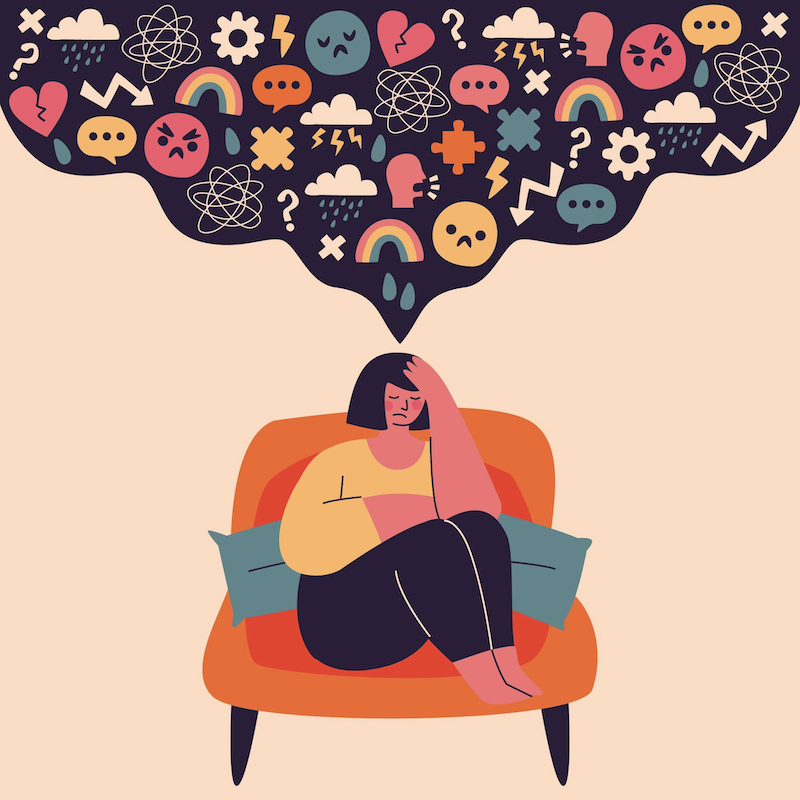
“It is best to not share your feelings with others. They will take advantage.”
“You cannot cry. No one will feel bad for you.”
“Stick it out and keep pushing.”
“There is no room for failure.”
These words were imprinted in my mind as mantras. They were constant reminders of my role as the eldest daughter of immigrant parents. From a young age, it was instilled in me that I had to be something. A living testament to my parent’s hardships in coming to the United States. My mother left her family at 14 to escape the horrors of the Vietnam War. My father, a victim of “in the wrong place at the wrong time”, found himself followed by authorities during the “Dirty War” in Mexico. My mental health struggles did not measure up to what my parents experienced. If I were to open up to my family about how I was struggling, I would feel guilty. I grew up in an idyllic coastal California town. I never had to worry about food, shelter, clothes or my safety. My parents did not have that. How could my mental conflicts measure up to what my parents experienced?
With my parents’ experiences in mind, there was an added cultural stigma about speaking on mental health. I was always taught to hold in my emotions. I had to be strong. There was no space for me to process anything that came up in my mind. My parents also did not have the capacity to support me in these struggles. They were too busy ensuring that the basic needs of my sister and I were met. My parents’ idea of comfort came in the form of words. I was always told, “echale ganas”, “ponte las pilas” or even, “keep working, because I don’t want you to work like me.” Instead of comfort, I felt this extreme pressure to hold everything in and do well. In other words, there were high expectations I had to meet. I needed to get good grades, have a nice social life, graduate high school and get into the best college. I had to be loveable, with a sweet smile and be attentive to everyone’s needs. Of course, holding this weight for so long did not bode well. During my third year of college, I experienced a severe mental health episode, which prompted me to seek therapy. To this day, my parents do not know what I have been through.
My experience is not unique. Among children of Asian, Pacific Islander and Latinx immigrants, there is a prevalence (10.1%) of psychological distress, which is double the prevalence of their immigrant parents (5.9%) (Think Global Health, 2020)[1]. Most of these experiences look different among my peers. They either exceeded their parents’ expectation or fell below it, which resulted in their parents’ disappointment. This is not to say that immigrant parents are bad. They were dealt with very difficult circumstances in their lives and did their best to raise us, their children. All they wanted was the best for us. However, they were not able to understand our mental health challenges as a U.S. born citizen. This is why it is important to find ways to support families, particularly mothers and fathers with their mental health. In doing so, families will be able to heal the traumas that have afflicted them for so long and thrive.
Mental Health Resources:
- TherapyForBlackGirls
- TherapyForBlackMen
- Black and Emotional Mental Health Collective
- Life Is Precious/La Vida Es Preciosa
- TherapyforLatinx
- Asian Mental Health Collective
- South Asian Mental Health Collective
- American Indian and Alaska Native (AI/AN) National Suicide Prevention Strategic Plan
- WeRNative
- Resources for Parents
[1] Source: https://www.thinkglobalhealth.org/article/children-immigrants-and-their-mental-health-needs#:~:text=In%20fact%2C%20the%20prevalence%20of,immigrant%20parents%20(5.9%20percent).
By Deanna Canales, Project Manager, for HOP’s series of monthly staff blogs

“It is best to not share your feelings with others. They will take advantage.”
It is the norm of every immigrant child as we are always been told. Thank you Deanna for sharing this with us.